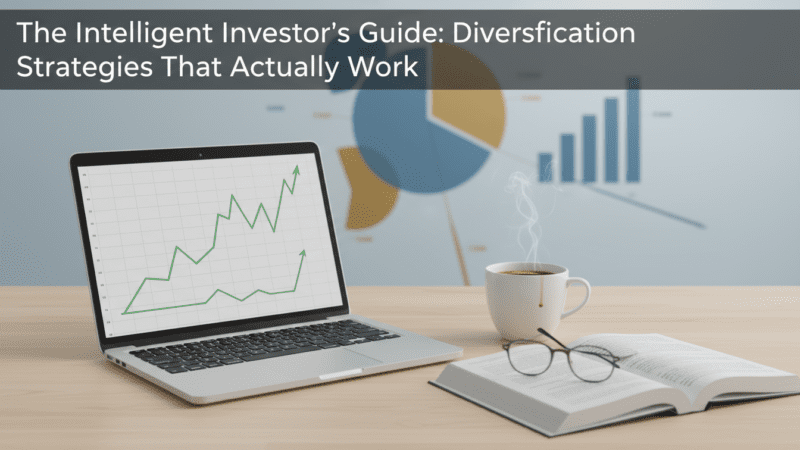Managing your money wisely isn’t just about numbers—it’s about building a life of security, opportunity, and peace of mind. Whether you’re just starting your financial journey or looking to optimize your investments, mastering the basics of personal finance and investing can transform your future. In this comprehensive guide, you’ll discover practical, actionable steps to build wealth, avoid common pitfalls, and set yourself up for long-term success.
Why Personal Finance Matters
Financial well-being is the foundation of a fulfilling life. As financial educator Suze Orman says,
“A big part of financial freedom is having your heart and mind free from worry about the what-ifs of life.”
By taking control of your finances, you gain the freedom to pursue your dreams—whether that’s owning a home, traveling the world, or retiring comfortably.
1. Set Clear, Achievable Financial Goals
Start by defining what you want to achieve. Are you saving for a home, planning for retirement, or building a business? Break your goals into short-term (1 year), medium-term (2–5 years), and long-term (5+ years) targets. Write them down and review them regularly to stay motivated and on track.

2. Create—and Stick to—a Realistic Budget
A budget is your financial GPS. Track your income and expenses to see where your money goes. Allocate funds for essentials, savings, and discretionary spending. Use budgeting apps or spreadsheets to make this process easier. Regularly reviewing your budget helps you spot areas to cut back and boost your savings rate.
3. Build a Robust Emergency Fund
Life is unpredictable. An emergency fund acts as your financial safety net, covering unexpected expenses like medical bills or job loss. Aim to save at least three to six months’ worth of living expenses in a separate, easily accessible account.

4. Eliminate High-Interest Debt
Debt, especially from credit cards or personal loans, can be a major obstacle to building wealth. Prioritize paying off high-interest debts as quickly as possible. Two popular strategies are:
| Method | How It Works | Best For |
|---|---|---|
| Debt Snowball | Pay off smallest debts first for quick wins | Motivation |
| Debt Avalanche | Pay off highest-interest debts first for savings | Reducing interest costs |
As financial expert Dave Ramsey puts it:
“You must gain control over your money or the lack of it will forever control you.”
5. Start Investing Early And Diversify
The earlier you start investing, the more you benefit from compound growth. Even small, regular contributions can grow significantly over time. Explore options like stocks, mutual funds, real estate, or retirement accounts. Diversify your investments to manage risk and maximize returns.
“Compound interest is the eighth wonder of the world. He who understands it, earns it; he who doesn’t, pays it.” — Albert Einstein
6. Continuously Educate Yourself
Financial literacy is a lifelong journey. Read books, attend seminars, and follow reputable financial news sources. Understanding market trends, investment vehicles, and economic principles empowers you to make informed decisions.

“The best investment you can make is in yourself. The more you learn, the more you’ll earn.” — Warren Buffett
7. Avoid Emotional Decisions
Markets fluctuate, and emotions can lead to impulsive choices. Stick to your investment plan, avoid panic selling during downturns, and remember that building wealth is a marathon, not a sprint.
8. Monitor and Adjust Your Plan
Regularly review your financial plan and adjust as your life circumstances change. Celebrate your progress and don’t be discouraged by setbacks—they’re part of the journey.
Quick Reference: Wealth-Building Checklist
Here’s a simple checklist to keep you on track:
| Step | Completed? |
|---|---|
| Set clear financial goals | |
| Create a budget | |
| Build an emergency fund | |
| Eliminate high-interest debt | |
| Start investing | |
| Diversify investments | |
| Continue financial education | |
| Review and adjust plan |
Frequently Asked Questions (FAQ)
Q1: How much should I save each month?
A: Aim to save at least 20% of your income, but any amount is a good start. Automate your savings to make it effortless.
Q2: What’s the best way to start investing with little money?
A: Consider low-cost index funds or ETFs, which allow you to invest small amounts and diversify easily. Many platforms now offer fractional shares.
Q3: How do I choose between the debt snowball and avalanche methods?
A: If you need motivation, the snowball method offers quick wins. If you want to save the most on interest, the avalanche method is more efficient.
Conclusion
Building wealth isn’t about luck—it’s about discipline, patience, and continuous learning. By setting clear goals, budgeting, saving, and investing wisely, you can achieve financial security and enjoy lasting peace of mind. Remember, the journey to financial freedom starts with a single step—take yours today.









